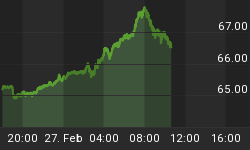In its effort to reign the bad boys of tax abuse, the European Union has extended its alleged tax haven countries blacklist by adding ten new destinations, sparking uproar from some of its own members who disagreed with the additions, particularly that of the powerful UAE.
“The blacklist has had a resounding effect on tax transparency and fairness worldwide,” EU Economic and Monetary Affairs Commissioner Pierre Moscovici said in a statement. “We are raising the bar of tax good governance globally and cutting out the opportunities for tax abuse.”
The EU Commission creates the list based on tax transparency, good governance, real economic activity, and the existence of a zero corporate tax rate.
The 10 additional venues that failed to meet the EU’s criteria as such, included: Belize, Aruba, Barbados, Bermuda, Dominica, Fiji, Marshall Islands, Oman, Vanuatu and the UAE.
Blacklisted jurisdictions face reputational damage and stricter controls on their financial transactions with the EU, no EU sanctions have yet been agreed by European states. If nothing else, the EU blacklist is intended to serve as an incentive for countries to raise their standards. For UAE, that blacklist is particularly harmful because it’s the main financial hub in the Gulf.
The UAE, for its part, says the fact that it landed on the EU’s tax haven blacklist was the result of inadequate communications between the EU and UAE, and authorities have said they are working to have the country delisted.
“As far as compliance to international standards, the UAE is fully committed. No effort will be spared in meeting with the governance standards,” Gulf News quoted Abdul Aziz Al Ghurair, chief executive of Mashreq Bank and chairman of the UAE Banks Federation (UBF), as saying. Related: Wells Fargo Accused Of “Ongoing Lawlessness”
But it’s not the first time the UAE has been on this list. The first “name and shame” list came out in late 2017—and UAE was on it, along with 16 other economies. UAE, at that time, agreed to address the EU’s concerns and was delisted a month later (along with Bahrain).
Over a year later, the EU is still convinced that the UAE “facilitates offshore structures and arrangements aimed at attracting profits without real economic substance and has not yet resolved this issue”, as Forbes reports.
Indeed, at the beginning of this year, Transparency International called Dubai a “money laundering paradise”.
Italy—one of the UAE’s biggest EU trading partners—was strongly opposed to adding the UAE to the list. Italian authorities claim that UAE has been faced with constitutional constraints and had to work with a “time-consuming legislative process” to pass te necessary reforms.
The UK was also reportedly against the inclusion of Bermuda, a British overseas territory, for its failure to address tax reforms. Bermuda was required to change its tax rules by the end of February, but added new loopholes in revised legislation and did not provide a final text by the deadline.
Related: Why Twitter's CEO Is Backing A New Bitcoin Boom
Some, though, are calling the EU hypocritical.
According to Oxfam, if the EU applied its own criteria for blacklisting to its member states, four countries would qualify - the Netherlands, Malta, Ireland, and Luxembourg.
In the past few years there have been several tax evasion scandals, including the Luxembourg Leaks and the Paradise Papers, involving those four EU countries.
Even committee of the European Parliament found earlier this month that seven of the EU’s own member states behave like tax havens.
By Michael Kern for Safehaven.com
















